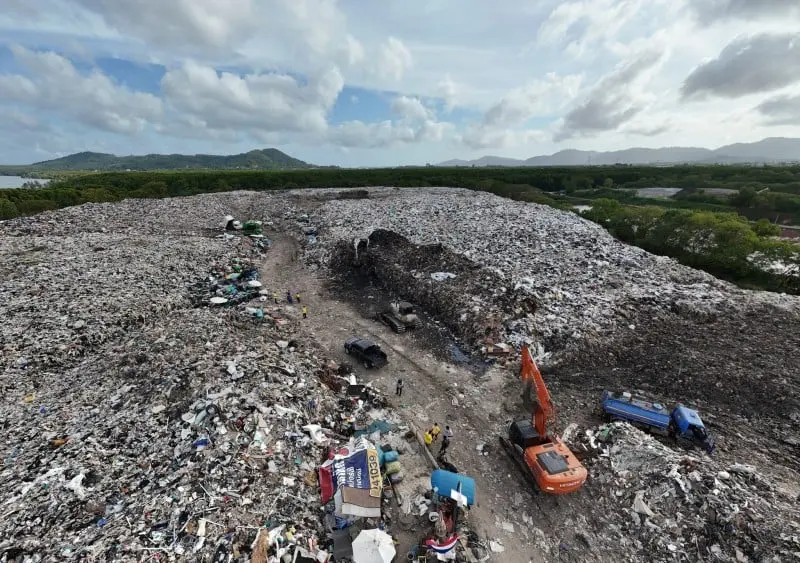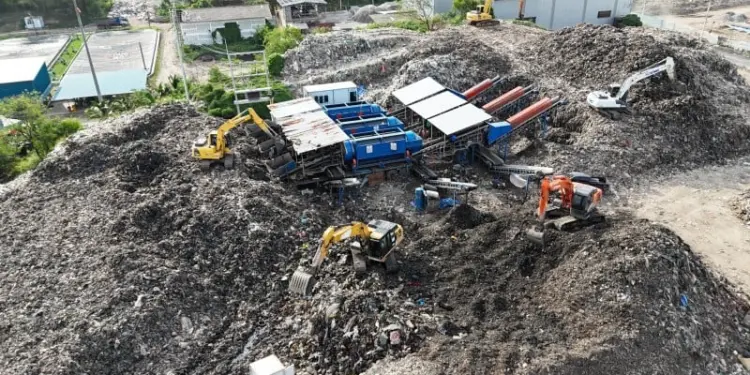Phuket is facing a mounting waste emergency as the Saphan Hin landfill surpasses its designed capacity, sending warning signals through the island’s communities and leaders. With trash continuing to flow in from across the province, municipal officials and provincial authorities are scrambling to find short-term relief and longer-term solutions before public health and the environment suffer further.
Phuket landfill exceeds 800,000-tonne capacity
The Saphan Hin landfill, managed by Phuket City Municipality, has exceeded its 800,000-tonne capacity, creating an urgent crisis for the island. The site receives waste from all local administrative organisations across Phuket, and the sheer volume has overwhelmed available space, equipment and budgets, leading to worsening foul odours, swarms of flies and other environmental nuisances that affect nearby neighborhoods and tourism areas alike.
Mayor Suphot La-ongphet sounded the alarm that without additional resources and clear action some of the material could even be returned to the site after partial processing, a prospect that underlines how fragile current disposal arrangements have become. Complicating operations, the rainy season brings wet ground and standing water that hinder sorting and transport, increasing costs and slowing removal efforts when time is already short.

Calls grow for waste separation and urgent funding
To address the crisis, central government funding for fiscal 2025 will finance the dismantling of 100,000 tonnes of old waste, while private-sector partners have committed to remove a further 200,000 tonnes, but roughly 500,000 tonnes still remain unaccounted for. The Phuket Provincial Administrative Organisation has pledged B30 million and Phuket City Municipality will add B10 million to tackle another 100,000 tonnes, yet these contributions fall short of the scale required to fully clear or sustainably manage the backlog.
Mayor Suphot has emphasized that long-term success hinges on reducing waste at the source through proper separation, particularly of organic material that causes the worst odours and leachate. “If we separate waste at home, we can cut the amount going into the landfill by up to 60%,” he said, urging households, businesses and all levels of government to coordinate: the crisis, he noted, “is not just a municipal issue — it’s a responsibility we all share.” Additionally, the high cost of acquiring land for waste projects — including nearly B70 million in compensation demanded by the Royal Forest Department when forest land is used — places heavy strain on provincial budgets and complicates plans for new disposal or processing sites.
Phuket’s landfill emergency is both immediate and solvable, but it requires coordinated funding, infrastructure and a behavioral shift toward waste separation and reduction. With citizens, private partners and authorities working together, the island can reduce the burden on Saphan Hin, protect public health and preserve Phuket’s environment and appeal.




















